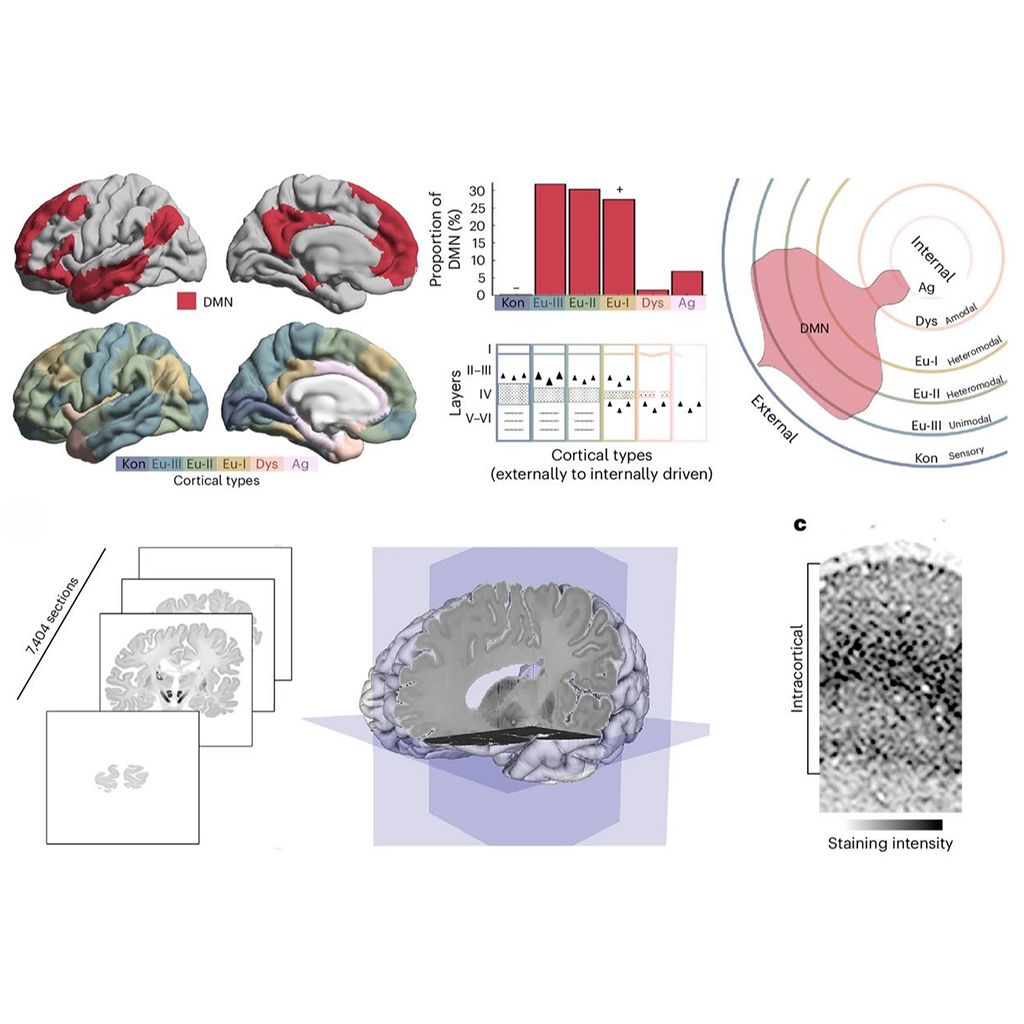
Towards a European Brain Initiative

In a world shaped by the pandemic, with all its economic implications, and in the face of new challenges posed by misinformation and mental health conditions, there is a need for new analytical approaches, tools, and insights from science to explore non-linear systems we live in. Understanding the brain, brain health, and brain disorders is essential to improving patients' health and quality of life. It also it offers a pathway to understanding the new economic and social reality.
Recently, the OECD’s New Approaches to Economic Challenges programme presented a Neuroscience-inspired Policy Initiative focusing on the concept of “Brain Capital”, which considers brain skills and brain health as indispensable parts of the knowledge economy. This initiative has entered the developmental phase, during which it examines the application of ideas originating in neuroscience and medicine to economic and social policy, including productivity, gender equality, mental health, education.
This principle-based approach to understanding the interplay between brain function and health and the economy also highlights the cost and burden when function and health turn into dysfunction and disease. The impacts of adverse brain function have never been greater. However, there is a convergence of developments that might help place the brain at the centre of the EU policy agenda.
Making brain health a priority in Europe
Good brain health plays a significant role in an individual’s well-being and collectively has a profound impact on the economy and society. Poor brain health, or brain disease, carries devastating public health, social and economic consequences. Participants of the Round Table highlighted the scale of brain health issues: “In 2021, more than 21 million people across the OECD member countries lived with dementia. Globally, dementia costs over USD 1 trillion per year and represents one of the leading causes of disability for elderly adults. This number will likely increase with population ageing over the coming years. Poor mental health affects one in 2 people during their lifetime, and the direct and indirect costs of mental ill-health can exceed 4% of GDP.” The detrimental effect of brain-related strain due to the COVID pandemic is only starting to emerge.
It was widely agreed that disruptions to brain health, such as mental health conditions and neurodegenerative diseases, are becoming increasingly prevalent and increasing society's burden. And that psychological resilience is key to absorbing and adapting to social and economic shocks. One participant pointed out the financial costs of brain disease: "Brain health disorders account for more than US$3 trillion of lost productivity every year."
Many participants urged for better prevention and education on the brain and mental health because, although treatments are available, "nearly two-thirds of people with a known mental health disorder never seek help from a health professional."
Although the role of the patient community has increased, “it is often left out of research projects until the last minute” and “The EU has been traditionally lagging behind the US in funding clinical trials.” Large-scale clinical studies are needed to bridge the gap between research and clinical practice and improve patient health.
Participants also referred to the need to continue to attract the best talent for neuroscience and brain health as essential to ensure meaningful breakthroughs in the future.
All participants agreed that significant progress in brain health needs to be achieved through changes in the overall public health care system and its organization. The case is strong for prioritizing brain health in the emerging European Health Union and the EU4Health programme and moving towards a holistic brain health strategy in Europe.
Connecting data, technology, research, and policy
When discussing the developments in brain research over the last decade, participants agreed that the progress had been significant thanks to the support of European funders. Participants also agreed that the development of the knowledge and technology now allow for widespread innovation and testing and sets the stage for greater involvement and proximity with patients and healthcare systems. All participants agreed that although brain health, research and technology raise many opportunities, they also pose a broad spectrum of policy issues that need to be urgently addressed.
Further aligning and consolidating research agendas and creating an EU-wide research and innovation ecosystem is needed to accelerate the scientific and technological progress and continued emergence of new and innovative solutions for patients. As one participant said: “We need to bring precision approaches to brain and mental diseases as well as prevention and diagnosis. The shallow approach does not work any longer. Neuroscience, neurology and psychiatry need to merge and transform their framework as the field of oncology did.”
The role of policy is essential to facilitate the translation of research results into applications for healthcare. Participants concurred that there are unexplored opportunities to harness the power of developing and bringing together, at a regional and global scale, multiple, heterogeneous big data sets (e.g. deep genetic, epigenetic, behavioural and environmental research data with broad administrative, transactional, health system data sets), to support better brain care and research. Participants also urged a global and inclusive brain research strategy in Europe and called for a sufficient level of commitment and financing from the member states as essential to push this through.
Finding the right balance between the individual right to privacy and the progress of science is a significant and pressing issue. One participant said: “Europe’s GDPR is a solid legal and regulatory framework for research involving patients and human subjects, but it poses challenges for collaborations where data exchange is needed to progress.” Another participant said: “We have now a new type of neuroscience that is characterized by digital tools and interdisciplinary collaboration at a large scale, and this needs to be considered when we think about the best way to handle data under EU regulations.”
The creation of the European Health Data Space will build a technological and process-based foundation for data sharing and exchange. It will enable convergence on data governance and allow efficient rules to ensure high standards for data quality and exchange. At the same time, it will facilitate the update and upgrade of essential data infrastructure and the exchange of information between European patients, health care systems, researchers, and planning and the design and implementation of clinical trials involving patients across multiple countries.
Towards a European Brain Initiative
Participants of the Round Table agreed that it is time to aggregate thinking, resources, and policy efforts in Europe. And that significant and transformative breakthroughs will come from the best scientists and the innovative work produced so far. Participants urged for stepping up efforts at the European level through more strategic funding streams and alignment of research agendas.
One step forward could include the establishment of a brain health pillar of the European Health Union and efforts to identify existing and missing funding mechanisms in the Horizon Europe funding program. This would address the risk of fragmentation of funding after the end of some of the large-scale programmes in 2023.
It is also essential to systematically align research agendas across the member states, arriving at a synergetic set of national commitments to the brain health agenda. This will enrich the European Commission efforts and enable rapid development of research and data infrastructures as part of the European brain health tapestry. One of the templates for this approach could be the concept of a Knowledge Hub on the Brain to inform policy-makers, modelled after the EC Knowledge Centre on Cancer.
Finally, participants highlighted the pressing need to develop the European Health Data Space and set it on a roadmap to address the needs of the research and health community while ensuring that data safety, exchange, and governance are maintained at the highest level.
About EBRAINS
EBRAINS is a new digital research infrastructure (RI), created by the EU-funded Human Brain Project (HBP), to foster brain-related research and to help translate the latest scientific discoveries into innovation in medicine and industry, for the benefit of patients and society.
It draws on cutting-edge neuroscience and offers an extensive range of brain data sets, atlases, modelling and simulation tools, easy access to high-performance computing resources and to robotics and neuromorphic platforms.
All academic researchers have open access to EBRAINS’ state-of-the art services. Industry researchers are also very welcome to use the platform under specific agreements. For more information about EBRAINS, please contact us at info@ebrains.eu or visit https://ebrains.eu/

EBRAINS is listed on the ESFRI roadmap
About the Human Brain Project
The Human Brain Project (HBP) is the largest brain science project in Europe and stands among the biggest research projects ever funded by the European Union. It is one of the three FET Flagship Projects of the EU. At the interface of neuroscience and information technology, the HBP investigates the brain and its diseases with the help of highly advanced methods from computing, neuroinformatics and artificial intelligence and drives innovation in fields like brain-inspired computing and neurorobotics.
Media Contact
Pedro Teixeira
Tel.: +32 499 90 70 44
pedro.teixeira@ebrains.eu
News & events
All news & events
- News16 Apr 2025


